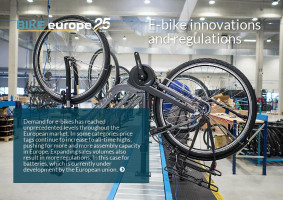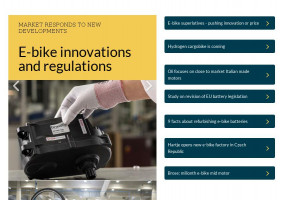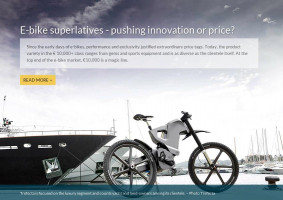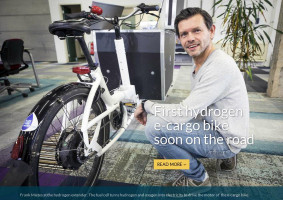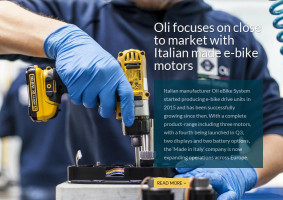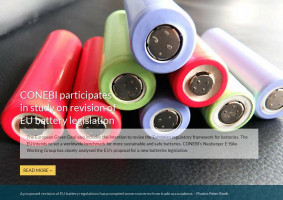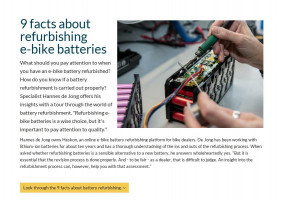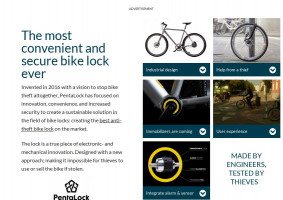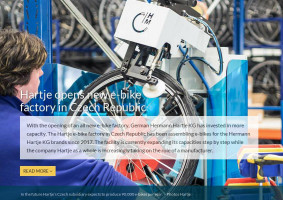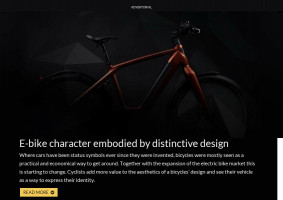The European Green Deal also includes the intention to revise the European regulatory framework for batteries. The EU intends to set a worldwide benchmark for more sustainable and safe batteries. CONEBI’s Neuberger E-Bike Working Group has closely analysed the EU’s proposal for a new batteries legislation.
ReaD MORE
“The rapidly expanding e-bike market makes the improved and more harmonised legislation on sustainability of batteries more urgent,” writes the Confederation of the European Bicycle Industry (CONEBI) in a statement. “Since the spring of 2020, we have actively supported the European Commission in the preparation of the recently published proposal for a new EU EU Batteries Regulation. We welcome this proposal, but would like to highlight some specific topics.
For industry organisation LEVA-EU, the Commission’s battery proposal is an existential threat for LEV-market. “The conditions set out for this categorisation are such that certain light, electric vehicles (LEV) will be prevented from coming on the market,” writes LEVA-EU in a statement. LEVA-EU has made proposals to the Commission for essential amendments.
Classification as portable batteries
A major change in the proposal is that e-bike batteries will be classified as portable batteries, similar to other batteries that are frequently handled by consumers, instead of industrial batteries, as is currently the case. In addition, a new sub-category is proposed for batteries of ‘light means of transport’. “We hope that this will allow for dedicated collection schemes for those types of batteries,” writes CONEBI. “However, there are also various aspects that will have to be further clarified including some of the definitions. For example, portable batteries are currently capped at 5 kilogram which could pose a problem for e-bike batteries as they have become larger in capacity and thus heavier over the past years.”
Questions and answers on sustainable batteries regulation
“Moreover, batteries of ‘light means of transport’ are currently limited to ‘vehicles that have an electric motor of less than 750W’, which would put batteries from EPACs, S-EPACs and powered cycles into two different categories. Instead, we propose to base the limits on the energy capacity of batteries and suggests 2kWh as a limit,” states CONEBI.
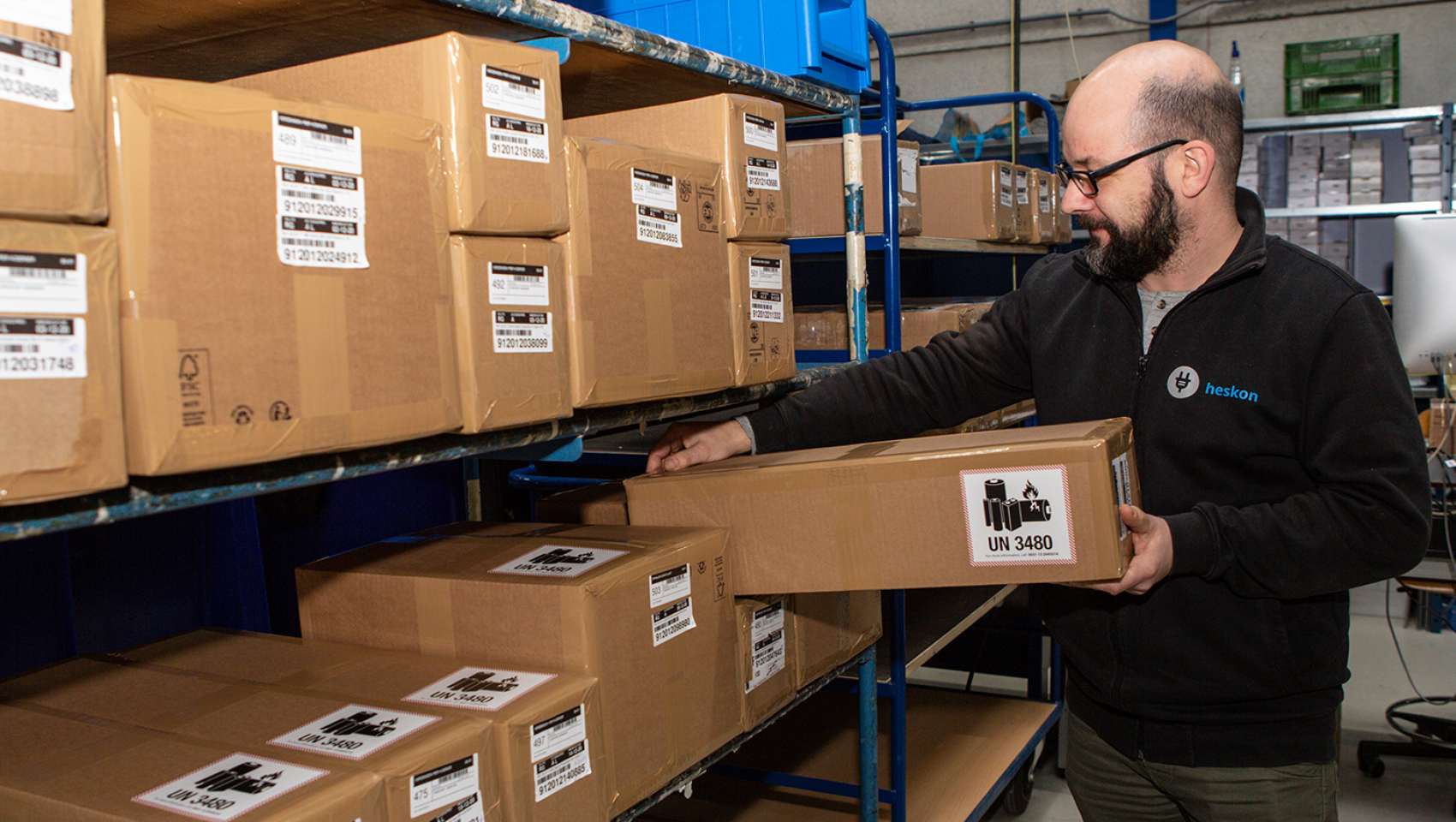
Refurbishing batteries or not?
Today, a sound legal and technical framework for repair and remanufacturing, also known as refurbishing, of batteries is missing: thus CONEBI strongly advises against facilitating any repair or remanufacturing of batteries in general, and especially not for unauthorised third parties. CONEBI motivates its position by stating that, “lithium-ion batteries, and therefore e-bike batteries, have to pass stringent tests in product certification and are treated as dangerous goods by international law for a reason. Only the respective battery producers have complete knowledge of their product as well as the complete safety chain and can make sure that the battery packs or systems are safe for the consumer to use. It is important that the consumer receives a safe, reliable and certified product from a well-controlled design and production process. This can only be ensured by the producer. A battery that has been tampered is less likely to meet those strict safety standards.”
CONEBI is also afraid that regulation might not be consistent with other regulatory frameworks. “The European Commission's proposal introduces a double legislation on restriction of hazardous substances. All chemical related requirements on batteries are and should continue to be covered in the REACH regulation (EC) No 1907/2006 as well as the RoHS Directive 2011/65/EU. Therefore, the proposal of a new competence for the EU Commission to regulate hazardous substances outside the REACH and RoHS frameworks is worrisome,” states CONEBI. “It is our objective to ensure that the new EU regulatory framework for batteries will improve the requirements for all e-bike batteries.”
Existential threat for LEV-market
“The idea that sealed LEV-batteries of less than 5 kg will be considered portable batteries, on the condition that they are used in wheeled vehicles with a seating position, with a motor of less than 750 W to be powered by the motor alone or by a combination of motor and human power, mean that one and the same battery becomes either portable or electric vehicle battery depending on the wattage of the motor,” writes LEVA-EU. “A speed pedelec in L1e-B with a 500W motor would have a portable battery. That exact same battery in a speed pedelec with a 750W motor becomes an electric vehicle battery. All batteries in e-scooters, e-monowheels, e-hoverboards and self-balancing vehicles, etc. will be electric vehicle batteries because they don’t have a seating position.”
“This makes it is simply impossible for LEV-battery producers to comply with electric vehicle battery regulations. Another major issue is the fact that a lot of the responsibilities fall on the producer, who first puts the battery on the market in a member state. In a large majority of cases, that will be the vehicle producer or importer. Under electric vehicle battery rules, that producer will be charged with duties beyond his competence. The only surviving market will be for e-cycles with pedal assistance up to 25 km – 250W. As a result, the transition from ICE-vehicles to LEVs will be reversed, all R&D made unnecessary and innovation made impossible.”
“We do agree that efforts are needed to improve the sustainability, longevity and recyclability of Li-Ion batteries for LEVs. However, these efforts need to be well-founded, proportionate and aimed at promoting LEVs, not at pushing them out of the market. LEVA-proposes to solve the issue as follows.
